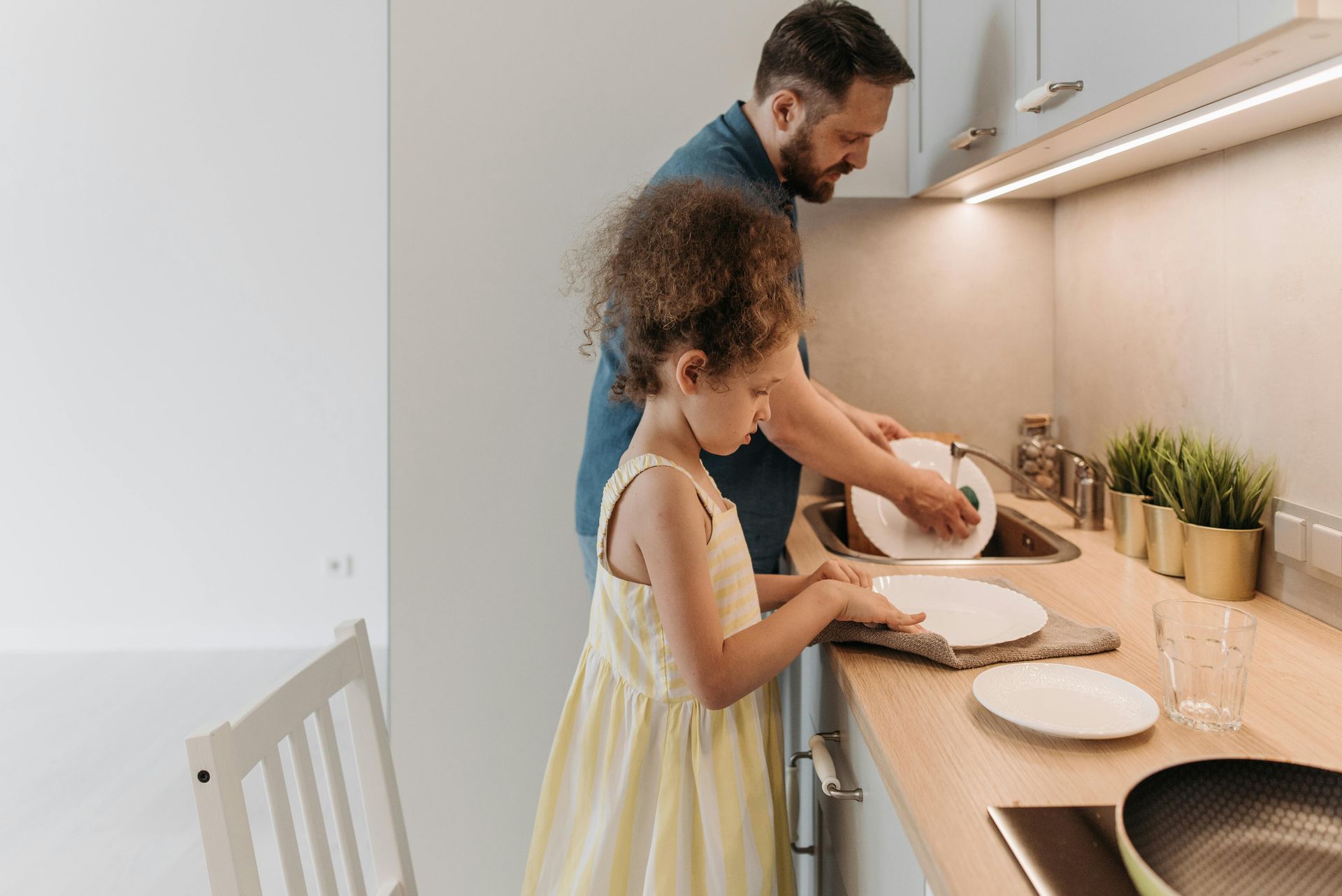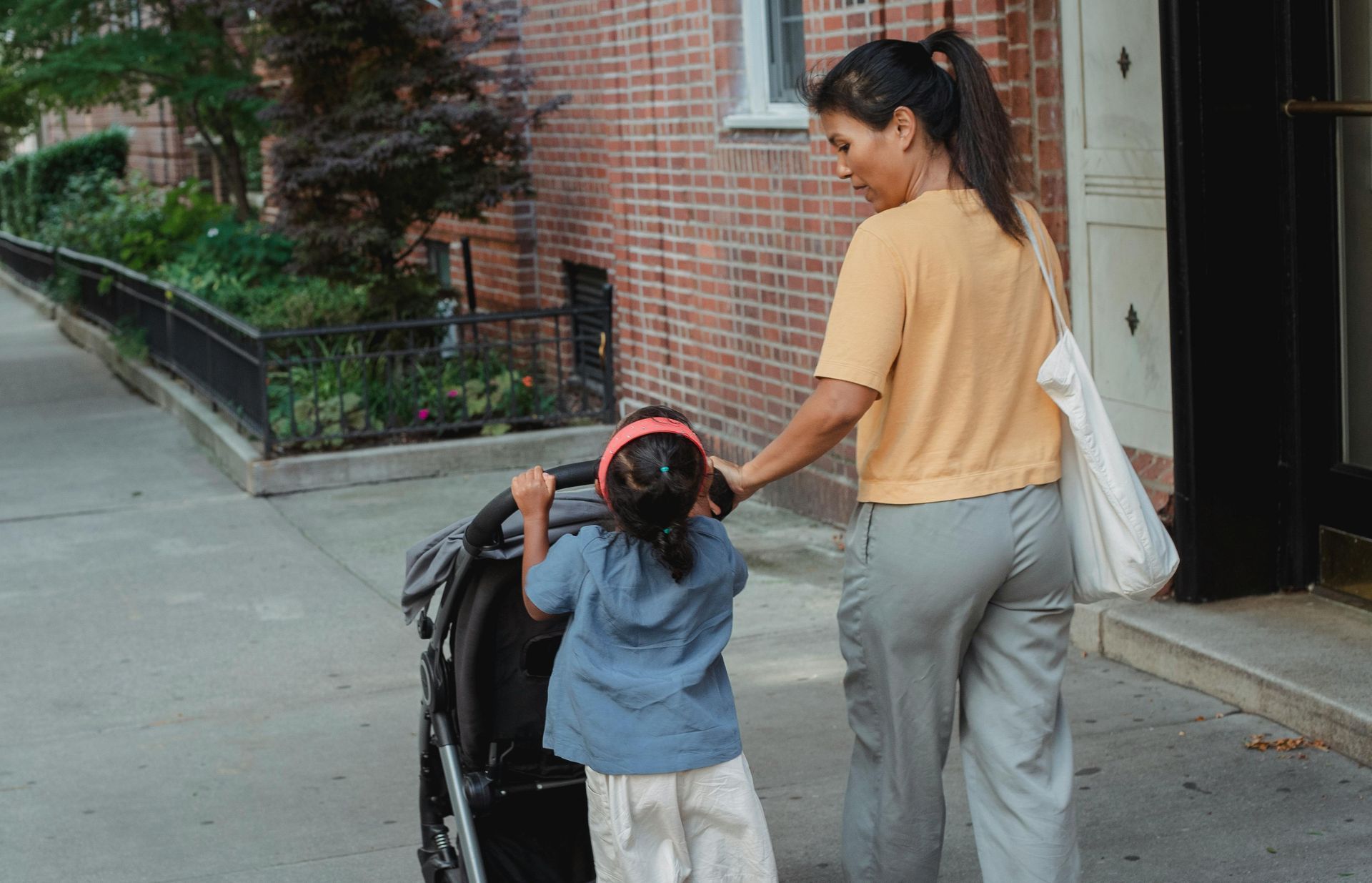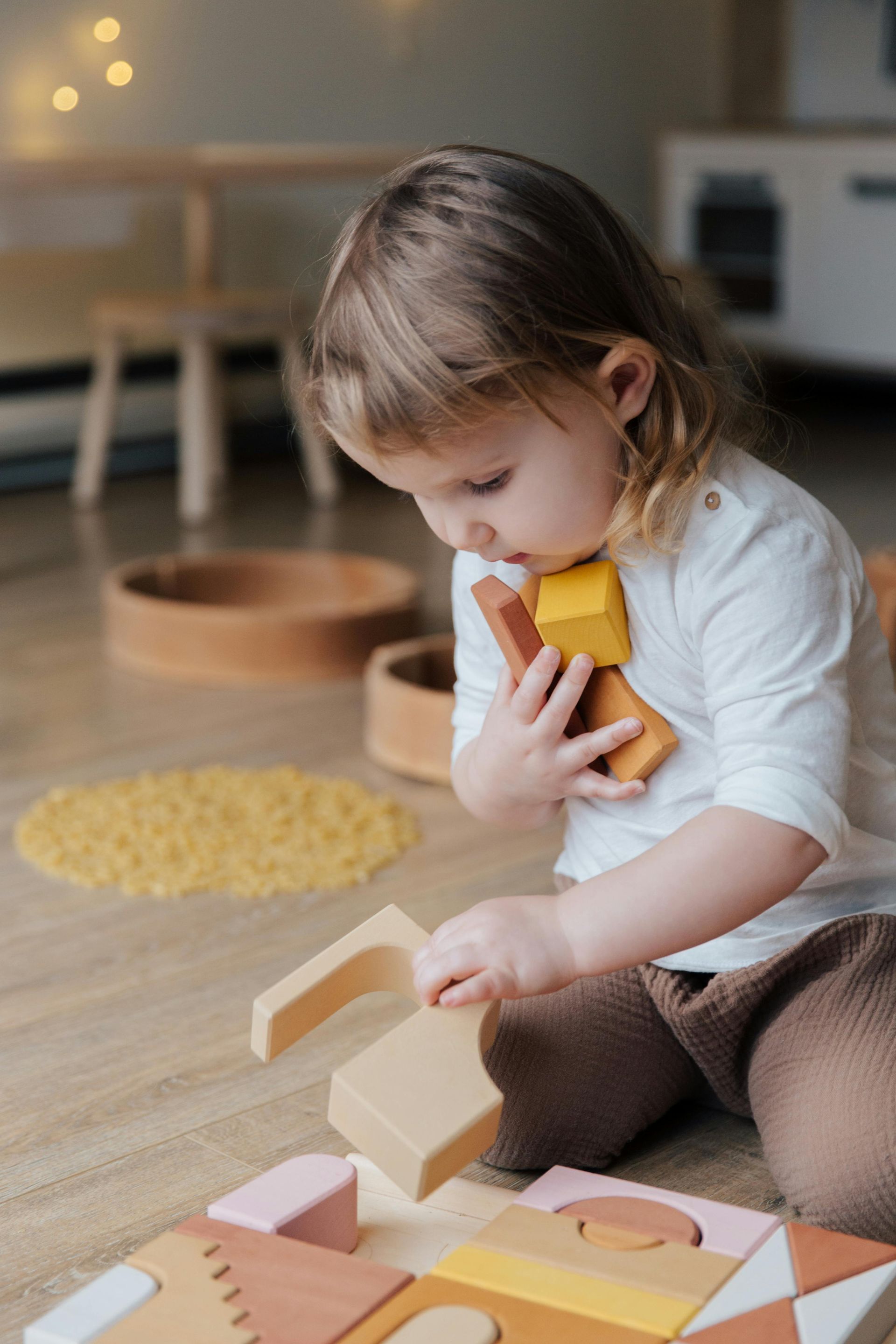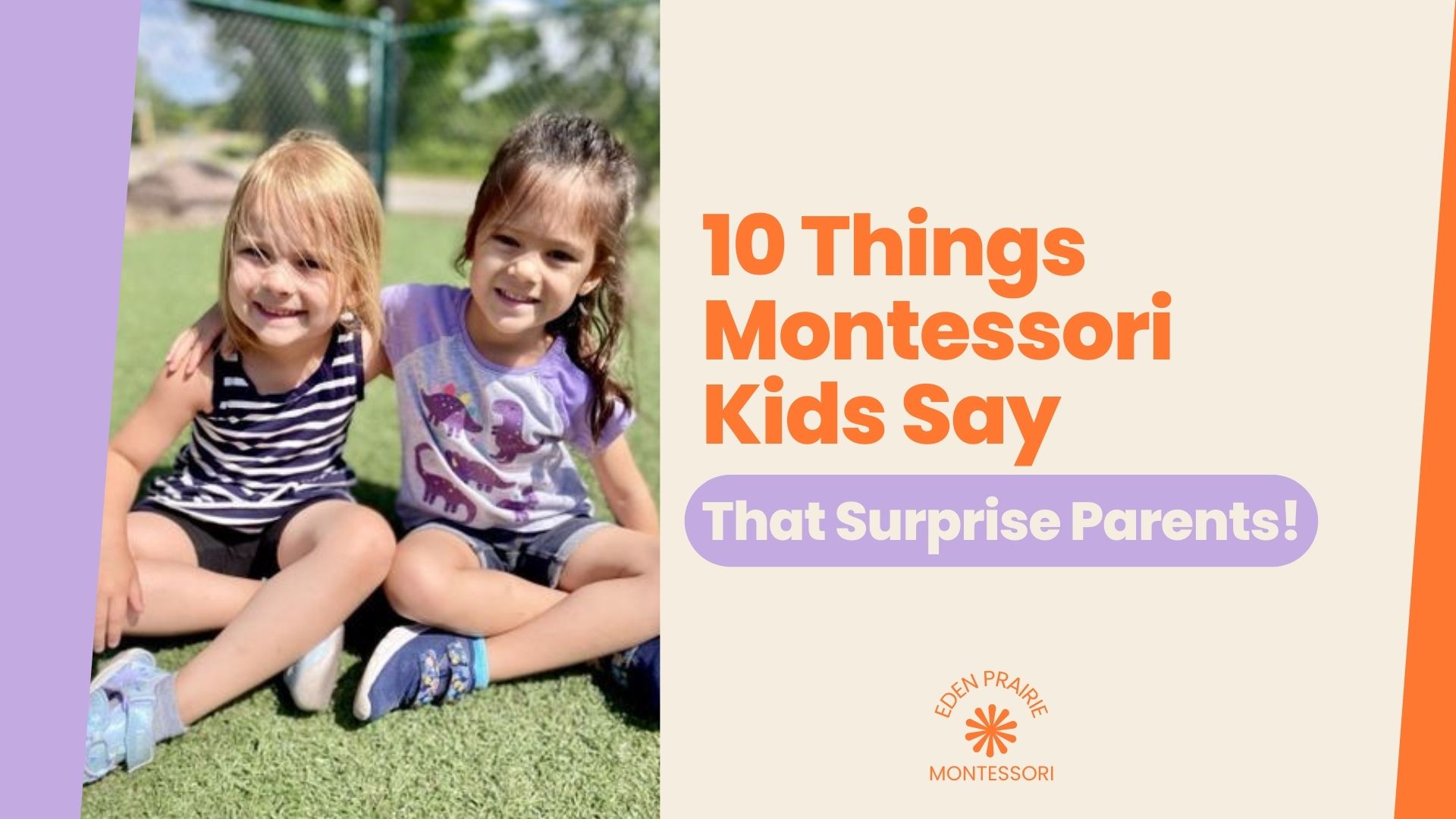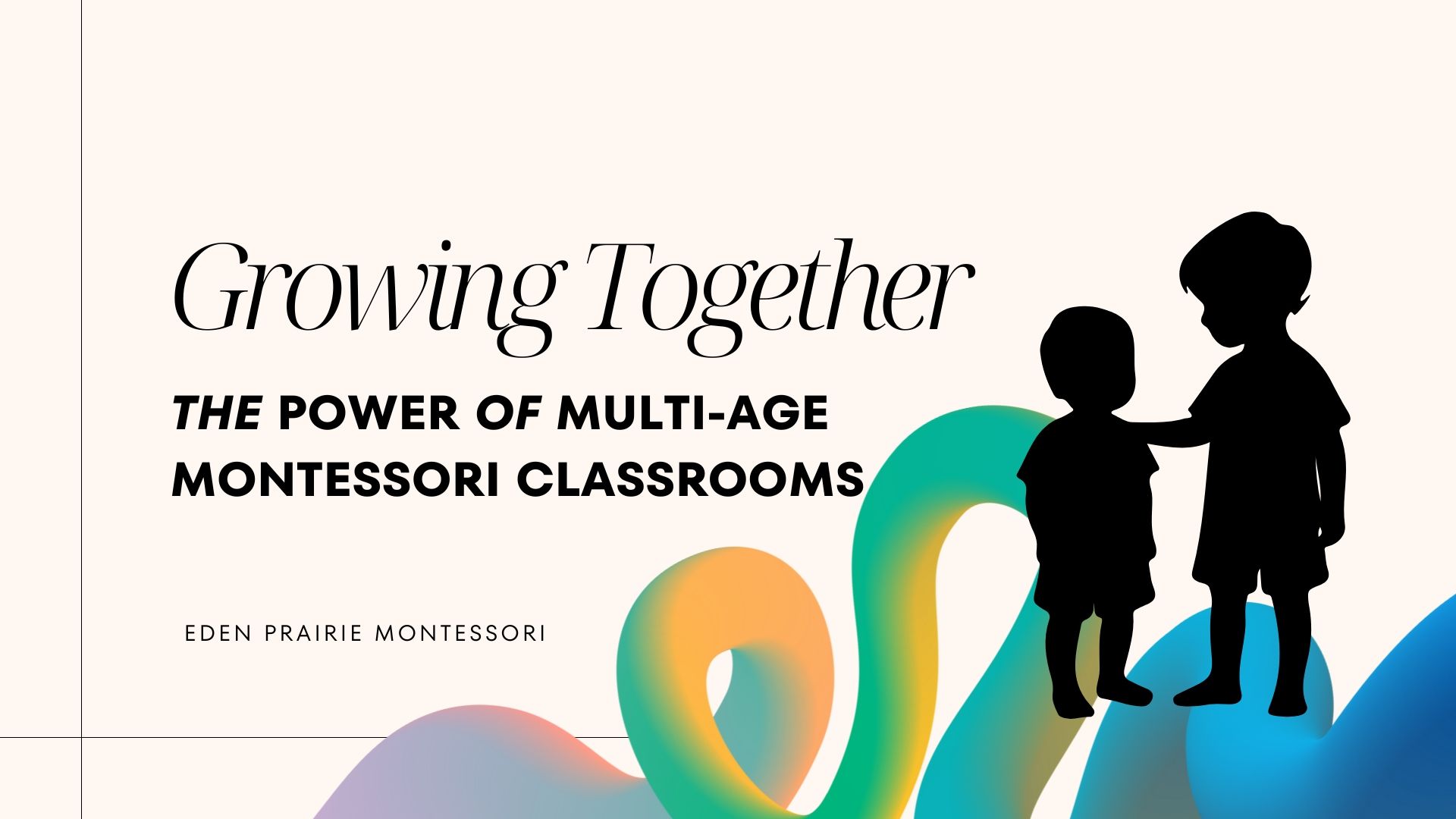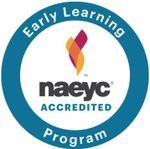Eden Prairie Montessori Learning Blogs
Raising Helpers: Nurturing the Joy of Pitching In
Montessori-inspired ways to keep that helpful spirit alive as your child grows...
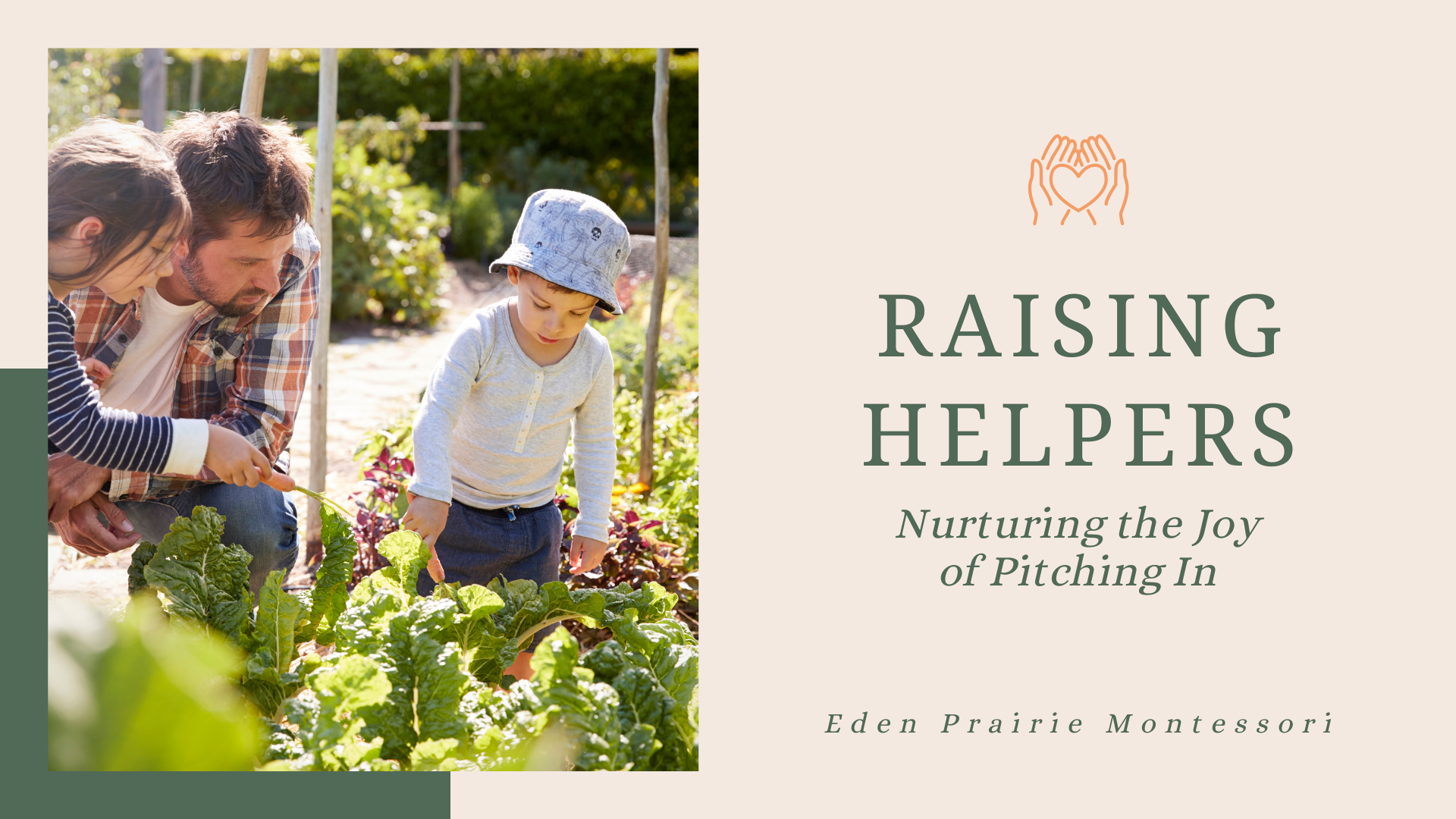
Let’s talk about one of the best things about toddlers (aside from their adorable vocabulary and unmatched snack enthusiasm): they love to help. Truly. Whether they’re dragging a broom twice their size across the floor or insisting on stirring the pancake batter, they’re all in.
To them, daily tasks aren’t “chores” - they are important jobs! Real, grown-up work. Work that says, you matter and you belong here.
But if your once-eager toddler has morphed into a bigger kid who suddenly seems less thrilled about helping out, you’re not alone. As children grow, they become more independent and focused on their own interests. It’s totally natural and actually a beautiful sign of their development!
Still, that doesn’t mean the desire to help disappears. We just have to nurture it a little differently. Here are some simple, Montessori-inspired ways to keep that helpful spirit alive as your child grows...
1. Help Them First
Children learn how to help by being helped. When we take time to support them with patience (without jumping in and doing it all for them) they start to understand what helping feels like. Sometimes a little boost through a tough moment is all they need to keep going.
"Never help a child with a task at which he feels he can succeed."
— Maria Montessori
2. Model What Helping Looks Like
Whether you’re helping a neighbor carry in groceries, picking up after the family dog, or supporting your partner at home, your kids are always watching. And what they see shapes how they act. If helping is something we do naturally, they’re more likely to pick it up too!
3. Talk About Helping as Part of Who We Are
A good phrase to make part of our lives is: “In our family, we help each other.” It’s simple but powerful, and when we repeat this in a kind, natural way (not as a rule or reprimand) it becomes a core family value. Helping isn’t something we have to do - it’s just what we do.
4. Make It Part of the Daily Rhythm
Helping becomes a habit when it’s part of everyday life. Encourage kids to have simple daily responsibilities at home: putting away their coats and shoes, feeding the dog, setting the table, tidying up toys. No gold stars or sticker charts; Just regular, expected contributions. It becomes as natural as brushing teeth or washing hands.
5. Offer Invitations to Join In
Let’s be honest, sometimes we’re in such a rush to get it done that we forget to let our kids in. But slowing down and letting them help (even if it’s messier or takes longer) sends the message that their contribution matters. Kid-sized tools like little brooms or spray bottles help them feel capable and confident.
"The child becomes a person through work."
— Maria Montessori
6. Don’t Force It
Even with the best intentions, some days are just off. And that’s okay! Inviting a child to help doesn’t mean they’ll always jump in and some days they might say no. Offering grace and space in those moments helps keep helping a choice, not a chore. More often than not, they’ll circle back when they are ready!
7. Accept the Help as It Is
So the dishes are a little streaky. The toys are tossed in the general direction of the bin. The laundry is... creatively folded. It’s okay! The goal isn’t perfection - it’s participation. Thank them for their effort, model the task again another time, and trust that skills grow with practice.
Raising Lifelong Helpers
At its heart, raising helpers is about more than clean floors and set tables. It’s about building a home where everyone feels valued, needed, and trusted. Where helping is a shared act of care, not a burden.
Whether your child is three or thirteen, there is always a chance to invite them into the work of the family. And when we do it with patience, consistency, and warmth, we're raising more than helpers~ we are raising kind, capable, community-minded children!
At Eden Prairie Montessori Learning Center we embrace the Montessori philosophy that children thrive when they are trusted, included, and empowered. Our classrooms are thoughtfully designed to support independence, responsibility, and a love of contributing to the community. If you're curious about how a Montessori education can support your child’s development at home or at school, we’d love to connect.
Contact us today to learn more about enrollment opportunities or schedule a tour:



